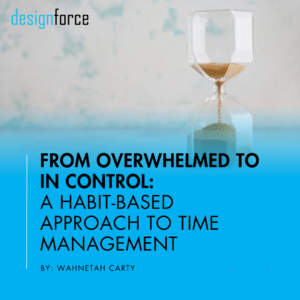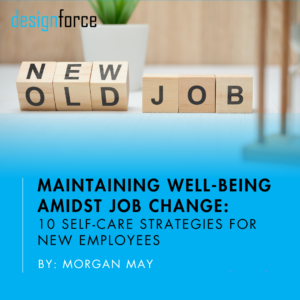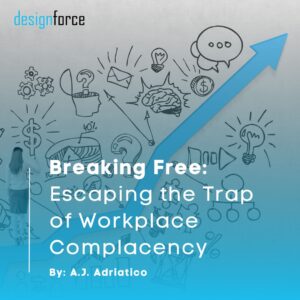 You’ve made it! It’s the last step of the process. You’ve spent hours of researching, prepping, interviewing, negotiating, and then finally – received and accepted your offer. And yet, the hardest step is still in front of you. Resigning truly is a luxury that not everyone gets to enjoy. For many people, the decision regarding future employment at a firm is made for them. So why is this luxury so bittersweet?
You’ve made it! It’s the last step of the process. You’ve spent hours of researching, prepping, interviewing, negotiating, and then finally – received and accepted your offer. And yet, the hardest step is still in front of you. Resigning truly is a luxury that not everyone gets to enjoy. For many people, the decision regarding future employment at a firm is made for them. So why is this luxury so bittersweet?
For many Americans, professional occupation is deeply tied to self identity. More than half of the workers in America define themselves based off of their job, and have been consistently doing so for decades. Many others identify with their organization even more than their occupation. The difference being “I work at X firm” vs. “I am an architect/designer/engineer.”
The human need to belong to a social group is so strong that the organizations in which we practice our trade end up carrying significantly more weight than many realize. According to a 2015 study, the average American spends 46.8 weeks per year at work compared to the 43 week average from 1980. As the time we spend at work increases, our occupations and organizations become that much more important to us.
Our colleagues have been there for us through most of the milestones in our lives. They have seen every promotion, relationship, breakup, death in the family. We find deeply connected social groups within our “work families” that have been our support systems during some of the most stressful aspects of our lives. So when that moment finally comes to walk away, no matter what led you to the point of entertaining an offer, it is often times a difficult and emotional conversation to have.
Much like a break up, resignation conversations follow the same “it’s not you, it’s me” pattern. We know it is what’s best for us and the firm, and yet, it can bring up strong and unexpected negative emotions resembling grief. Because, believe it or not, experiencing grief during career transitions is normal, even if it is your decision. Leaving a firm usually means saying goodbye to the colleagues you have seen every day for the last several years, the water cooler you would all hang out around, and the Tuesday lunch ritual that you developed your first month there and haven’t broken in almost five years. It’s okay to be upset. It’s okay to be sad. The emotions you feel during the resignation process are valid and not something to be ashamed of.
With that being said, this does not mean that we are helpless during the grieving process, nor that we should be. Being able to identify the fact that you’re grieving will allow you to set aside the time to process and address the emotions that are cropping up, and perhaps find other ways to ease the transition process. Working to create a transition plan can help. There are going to be a couple components to this plan. The first is creating a turnover strategy in which you list all of your current responsibilities and projects so that the next person in your position has a clear outline of what’s left to do. This will also allow you to have the time to reflect on all of your accomplishments at the firm while helping contribute to the success of the next-in-line. Another element is changing your “rituals” surrounding work. You have taken the same route to work, ate with more or less the same people, and have been looking at the same desk configuration for years. Your career move will most likely create the need for new rituals – so allocate time to think through what those new things will be. This will make them less daunting when the first day and following weeks at the new firm come.
It is important to remember that there is a reason why you’re resigning. There is a reason why you accepted the offer. The purpose of leaving is for substantial positive career advancement and greater happiness. This career transition was to have a shorter commute so you can pick your kids up from soccer practice. It’s to add diversification to your portfolio by joining a firm that gives you exposure to a typology your previous firm couldn’t offer. Your professional development led you to having this conversation because it is the best thing for you.
Resigning from a firm also doesn’t mean that you’re resigning from the relationships you have there. Yes, you will most likely see those colleagues less, but having a career transition doesn’t mean that you can’t maintain relationship with these people.
Some takeaways and action items:
- Be honest with yourself. Many of us have developed the ability to push “unhelp” emotions to the side or bottle them up to deal with later. Although effective in the moment, emotions will still find their way out and usually at the most inopportune times. So, be honest with yourself. If you’re sad, call it what it is a take an evening to be sad and let those emotions out.
- Be patient. Transitioning to your new firm or position can be stressful and uncomfortable, so it’s okay if it’s not all sunshine and ponies at first. Give it time to fall into place.
- Talk it out. Grab a cup of coffee with your best friend. Call your parents. If there’s something on your mind that you want to work through you have a support system to do that with.
- Remember the reason why you are resigning. You are resigning because you have found something even better than what you currently have. Celebrate that fact! Resignation is the last hurdle to achieving your ultimate goal, so don’t let that conversation stop you from obtaining what you’ve worked so hard for.
Accepting an offer is an exciting and happy moment, but don’t be concerned if it feels bittersweet. Talking through your concerns, anxieties, and emotions can help. Friends and family are always good options for a sounding board. I’ve heard career counselors are pretty good listeners, too.

Related Posts
Let's learn together.
Stay inspired and in the know on all things A|E|C.
Sign up for our monthly newsletter.










